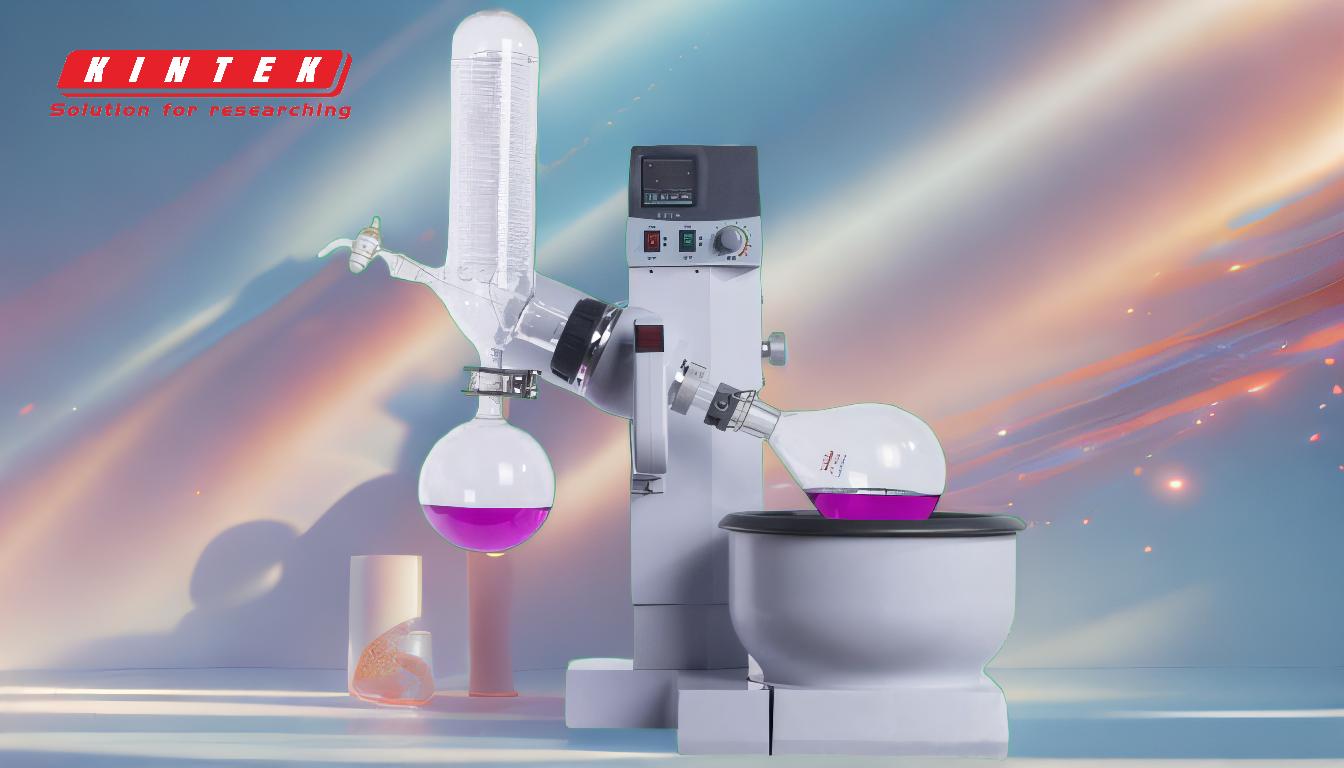If your rotary evaporator is not rotating, it is crucial to address the issue promptly to prevent further damage. The most common causes include mechanical issues such as a rusted bearing, electrical problems like a malfunctioning circuit board, or a faulty motor. Immediate cessation of operation and contacting the manufacturer for professional advice or service is recommended. Additionally, improper use, such as overloading the condenser by increasing evaporation rates, can indirectly affect the motor's performance. Understanding these potential causes and taking appropriate action can help resolve the issue effectively.
Key Points Explained:

-
Immediate Shutdown and Manufacturer Consultation:
- Why it matters: Continuing to operate a rotary evaporator with a non-rotating motor can exacerbate the problem, leading to more severe damage or complete system failure.
- Action: Stop the equipment immediately and reach out to the manufacturer or a qualified technician for diagnostics and repair.
-
Potential Mechanical Issues:
-
Rusted Bearing:
- Cause: Prolonged exposure to moisture or corrosive chemicals can cause bearings to rust, hindering rotation.
- Solution: Regular maintenance and inspection of bearings can prevent rusting. If rust is detected, replacing the bearing is necessary.
-
Faulty Motor:
- Cause: Motors can fail due to wear and tear, overheating, or electrical issues.
- Solution: A professional technician should inspect and replace the motor if necessary.
-
Rusted Bearing:
-
Electrical Problems:
-
Malfunctioning Circuit Board:
- Cause: The circuit board controls the motor's operation. Damage or failure can disrupt power delivery.
- Solution: Inspect the circuit board for visible damage or burn marks. Replacement or repair by a professional is often required.
-
Malfunctioning Circuit Board:
-
Improper Use and Overloading:
-
Overloading the Condenser:
- Cause: Increasing evaporation rates by lowering the vacuum or raising the water bath temperature can overwhelm the condenser, leading to motor strain.
- Solution: Adjust operating parameters to avoid overloading. Ensure the condenser has adequate cooling capacity, especially when working with volatile substances like ethanol.
-
Overloading the Condenser:
-
Preventive Measures:
-
Regular Maintenance:
- Why it matters: Routine checks can identify and address issues before they lead to motor failure.
- Action: Schedule regular inspections and servicing of the rotary evaporator, focusing on mechanical and electrical components.
-
Proper Usage:
- Why it matters: Correct operation reduces the risk of overloading and extends the equipment's lifespan.
- Action: Follow manufacturer guidelines for operating temperatures, vacuum levels, and sample types to prevent undue stress on the motor.
-
Regular Maintenance:
By understanding these key points and taking the appropriate steps, you can effectively troubleshoot and resolve issues with a non-rotating rotary evaporator, ensuring its longevity and optimal performance.
Summary Table:
| Issue | Cause | Solution |
|---|---|---|
| Rusted Bearing | Prolonged exposure to moisture or corrosive chemicals | Regular maintenance and bearing replacement if rusted |
| Faulty Motor | Wear and tear, overheating, or electrical issues | Professional inspection and motor replacement if necessary |
| Malfunctioning Circuit | Circuit board damage or failure | Inspect for damage and replace or repair by a professional |
| Overloading Condenser | Excessive evaporation rates due to improper settings | Adjust operating parameters to avoid overloading the condenser |
| Preventive Measures | Lack of regular maintenance or improper usage | Schedule routine inspections and follow manufacturer guidelines for operation |
Need help troubleshooting your rotary evaporator? Contact our experts today for professional advice and repair services!










